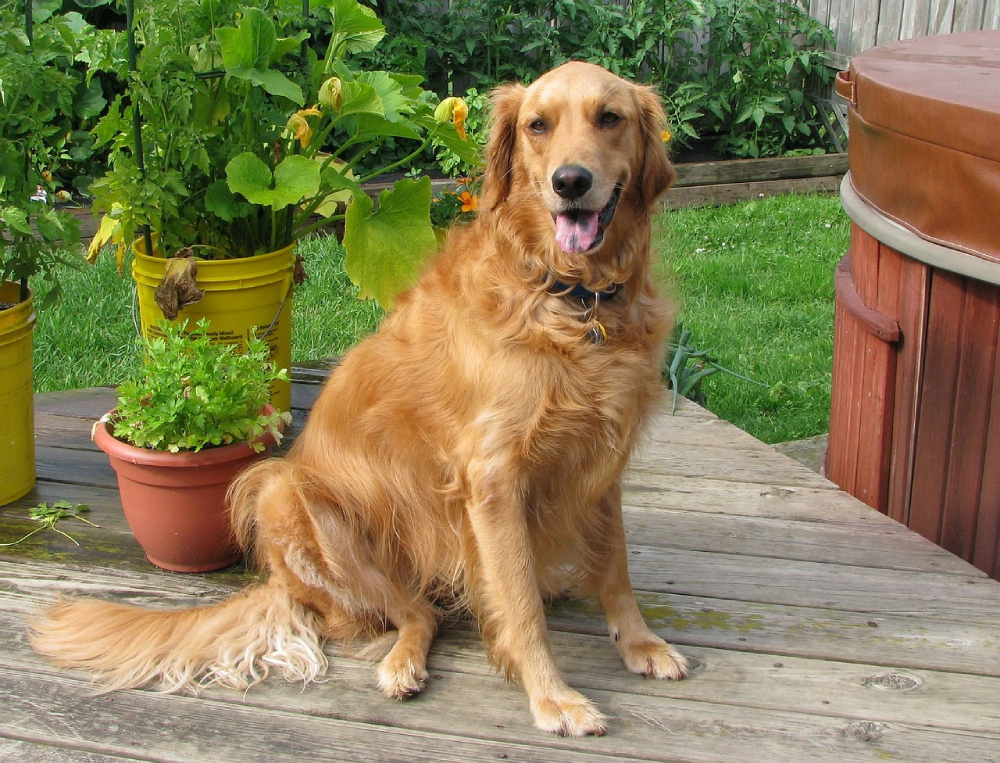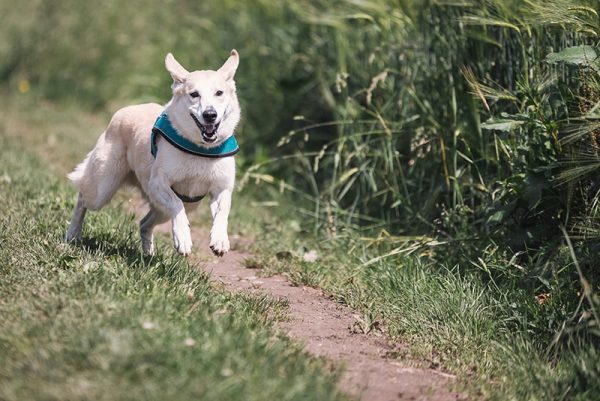In this article
View 8 More +The Golden Retriever is often described as being the best breed for first-time owners and the best all-round breed for any owner, although no single breed is the best choice for all owners. The Retriever is intelligent and easy to train, loving and loyal, and its use in a wide variety of service dog roles points to its empathy, understanding, intelligence, and eagerness to please.
However, the breed does have high energy requirements, and needs lots of love and attention from its owner, and that beautiful blonde coat requires regular maintenance to ensure the Golden Retriever is comfortable and looks its best.
Read on for more information about this popular breed and to see why it is such a popular choice with owners around the world.
Breed Overview
Height:
28–32 inches
Weight:
35–45 pounds
Lifespan:
10–12 years
Colors:
Gold, cream
Suitable for:
First-time and experienced owners who want a responsive, intelligent dog
Temperament:
Friendly, kind, caring, loving, confident, reliable, intelligent
The Golden Retriever is the quintessential pet dog. It is loyal and loving, which makes it a good choice for a family pet. It is also kind, understanding, and forgiving, which means that it is ideal for owners with children. The Golden Retriever tends to be confident and friendly to strangers and will get along with other animals.
Its intelligence and willingness to work have seen the Golden Retriever employed in a variety of service roles from therapy dog to search and rescue dog. It has even been used for bomb detection and in other stressful roles.
Golden Retriever Characteristics

Golden Retriever Puppies
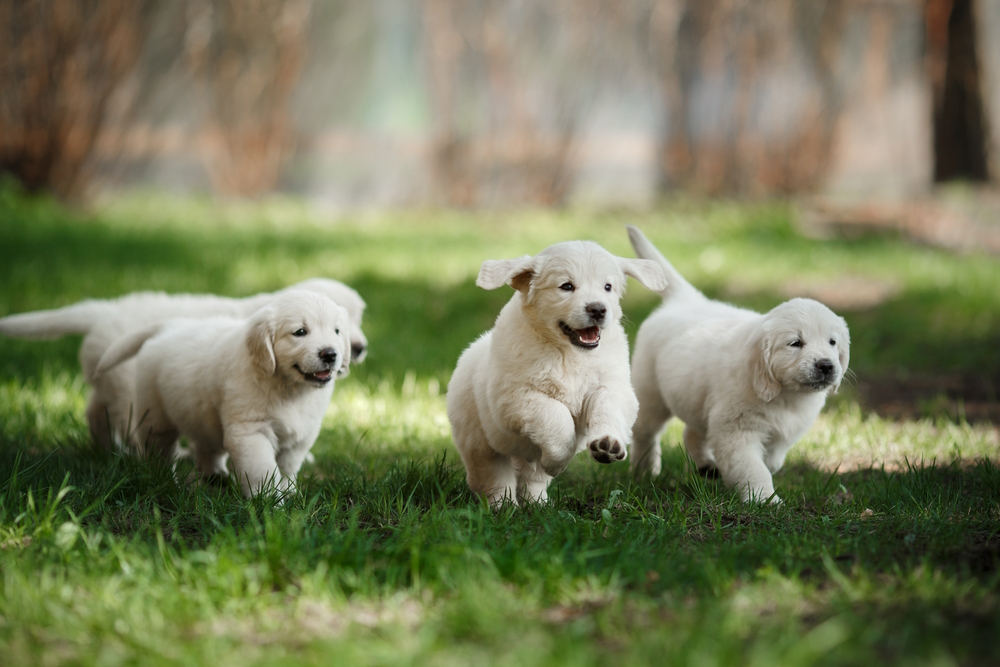
The Golden Retriever is one of the most popular dog breeds in the world and certainly in the U.S., which means that you should find it easy to locate breeders with Golden Retriever puppies. Do your due diligence to check that the breeders are reputable. Because the breed is so popular there are some unscrupulous breeders, as well as trustworthy ones. Meet the puppies and at least the mother, if not also the dad and any siblings. Make sure the Golden Retriever puppies look healthy and that they respond to your visit. They should be reasonably confident to approach you but still look to their mum for guidance.
The sheer number of Golden Retrievers means that you can often find them in rescues or shelters. When adopting, get as much information as possible from the shelter. Ask how the dog is with visitors and with other animals in the shelter. If possible, ensure that you meet the dog at least twice, and have your prospective new dog meet any existing dogs.
Golden Retrievers have a reputation for being friendly, sociable, and capable of getting along with anybody or anything. While it is true they have the propensity to be happy, outgoing, and affectionate dogs, whether a Retriever or any other dog does exhibit these characteristics as an adult dog ultimately depends on how well socialized they are when they are younger.
Even a Golden Retriever has the potential to be shy, aloof with strangers, and standoffish even with family and friends if it isn’t introduced to new people and hasn’t been taught how to deal with new and challenging situations when it is a puppy.
Socialization starts as soon as you get your new puppy home. In fact, it will have already started as the puppy will take its early social cues from its mother. When choosing a breeder, try to choose one that gives their puppies time in the house, rather than being kept in a barn outside.
This will ensure the dog has been introduced to people and knows how to act inside. The popularity of the Golden Retriever means that, unfortunately, this breed is somewhat prone to being heavily bred.
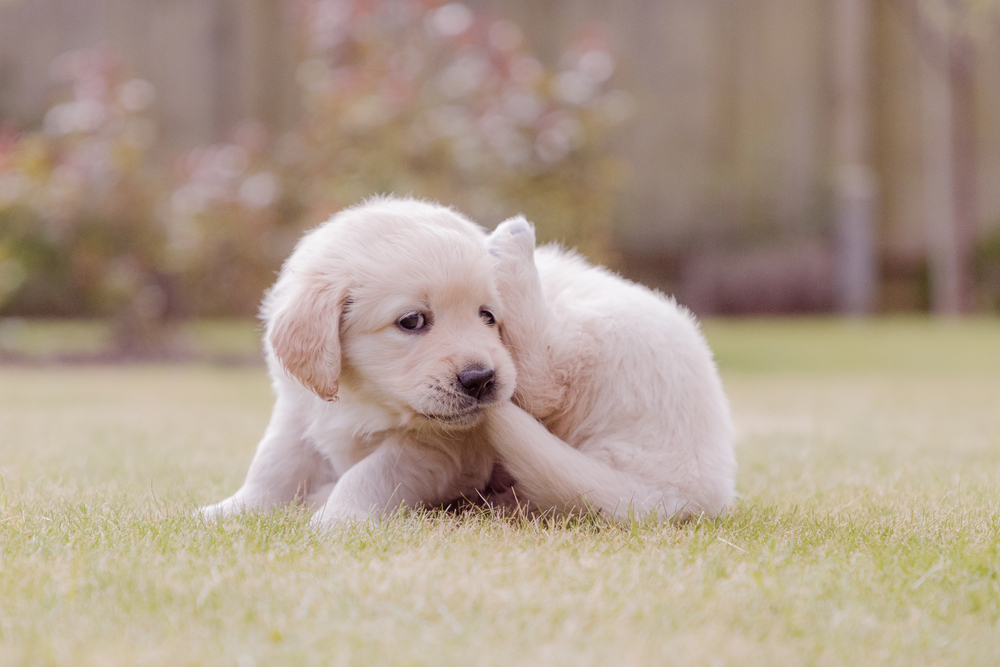

Temperament & Intelligence of the Golden Retriever
The popularity of the Golden Retriever is driven by its sociable demeanor and its loving and loyal nature. It is known to get along with virtually everybody, and it is often joked that the Golden Retriever would make a good guard dog because it would lick intruders into submission.
The breed is also good with family members of all ages, as well as friends and other visitors to the house. It is also attentive, diligent, and hard-working, which has seen it utilized in a variety of service roles. The Golden Retriever makes a very good guide dog and has been employed as a therapy dog in many settings.
Are These Dogs Good for Families? 👪
The Golden Retriever is considered an excellent family dog that will get along with family members of all ages, from young children to seniors. It is loyal and loving, and while the Golden does require plenty of exercise, it also enjoys spending time relaxing with its favorite humans.
The Retriever is a forgiving dog that will put up with young children, although owners do need to ensure that children don’t grab and pull the long coat of the dog, because it can cause pain. Because the Retriever is also good with strangers, it means that there is no worry when children bring friends back to the house.
Although the breed does require a lot of exercise and therefore tends to do better when it has access to a yard or other outdoor area, it can live in an apartment as long as you are able to provide plenty of daily exercise and walks.
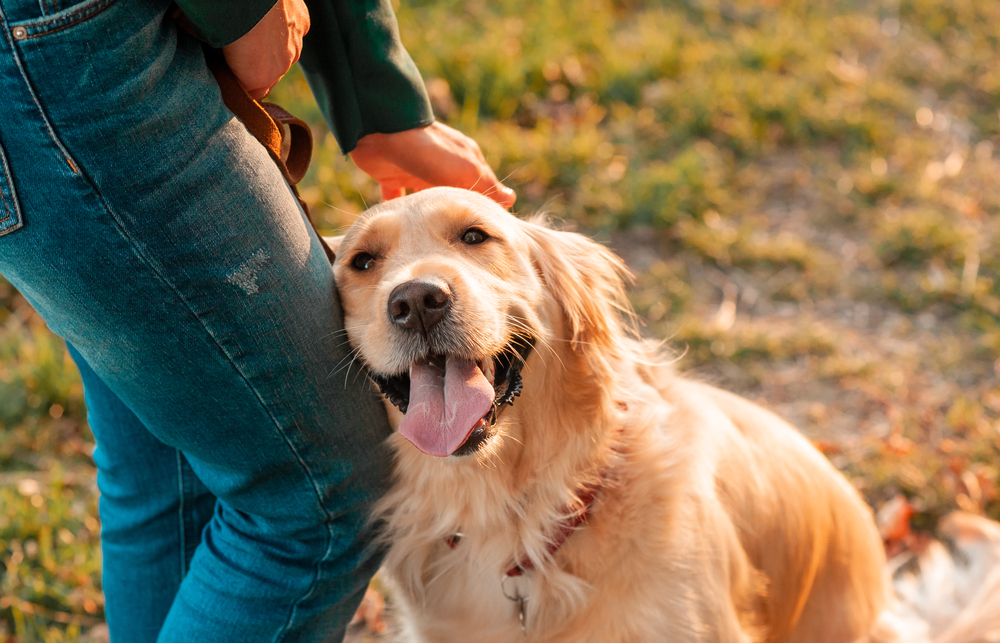
Does This Breed Get Along with Other Pets? 🐶 😽
It isn’t just humans that the Golden Retriever gets along with, either, as this breed is known to get along with other pets. It will do well when kept with other dogs, including other Golden Retrievers, and it can usually be introduced to cats.
Although the Golden Retriever can have a prey drive, this doesn’t usually materialize with the family cat. You should never leave dogs unattended with smaller pets like hamsters or rats, however, and when you do bring a new Retriever home, spend time ensuring that introductions to other pets are made gradually. This will help ensure they get along well.

Things to Know When Owning a Golden Retriever
The Golden Retriever gets along with children and adults and will usually get along with other dogs and cats. It is considered a good dog for families and is often described as being a very good choice of breed for first-time owners because it is understanding, loving, and loyal.
Below we look at some of the things you need to know when considering taking on a Golden Retriever, so you can determine whether it really is the right choice for your family.
Food & Diet Requirements 🦴
The Golden Retriever is a large, active breed that will eat around three cups of food per day. This amount may be higher for very active dogs, or a little lower for those that don’t get as much exercise. Goldens are somewhat prone to becoming overweight, so you must feed an appropriate amount. Weigh your dog and use an accurate measurement to determine how much to feed.
Weigh the food out in the morning and feed this over two or three evenly split meals in the day. If you feed treats or offer additional food over the day, the amount of dog food you give should be adjusted accordingly. No more than 10% of the calories your dog eats should come from treats, and however many treats you give, you need to reduce daily food levels by this amount.
Always ensure your dog has access to fresh, clean drinking water, throughout the day and night.

Exercise 🐕
The Golden Retriever does require a good amount of exercise every day. Expect to provide 90 minutes of walks a day, and supplement this with more intensive forms of exercise. The Golden Retriever not only excels in service roles, but it is a skilled working dog and can do very well taking part in canine sports. The breed does well in agility and flyball, and it can take to most sporting events.
As well as enjoying exercise on land, Retrievers love water. They were bred to hunt birds and were often used to hunt birds in rivers and other bodies of water. If possible, let your Retriever have some time swimming and paddling, as well as running across fields and through the trees. They might get muddy, but they will love the experience and it will help provide fulfillment and enrichment.
Training 🎾
This intelligent breed is not only clever but also very keen to please its humans, and that is a combination that makes the Golden Retriever an easy dog to train. This ease of training is another reason that the breed is considered one of the best for first-time owners. Retrievers will respond to food-based treats, but their desire to please means they will also respond to verbal and physical praise. Be animated and offer lots of praise when your Retriever performs a desirable task but avoid shouting or scolding your dog.
Sign up for puppy classes when your dog is young. Classes like this will teach your dog some basic commands, but they will also arm you with the knowledge of how to continue with effective training even away from the classes. Puppy classes are also a great way to start socializing your dog with other people and dogs. Continue this socialization at home, on walks, and in dog parks.
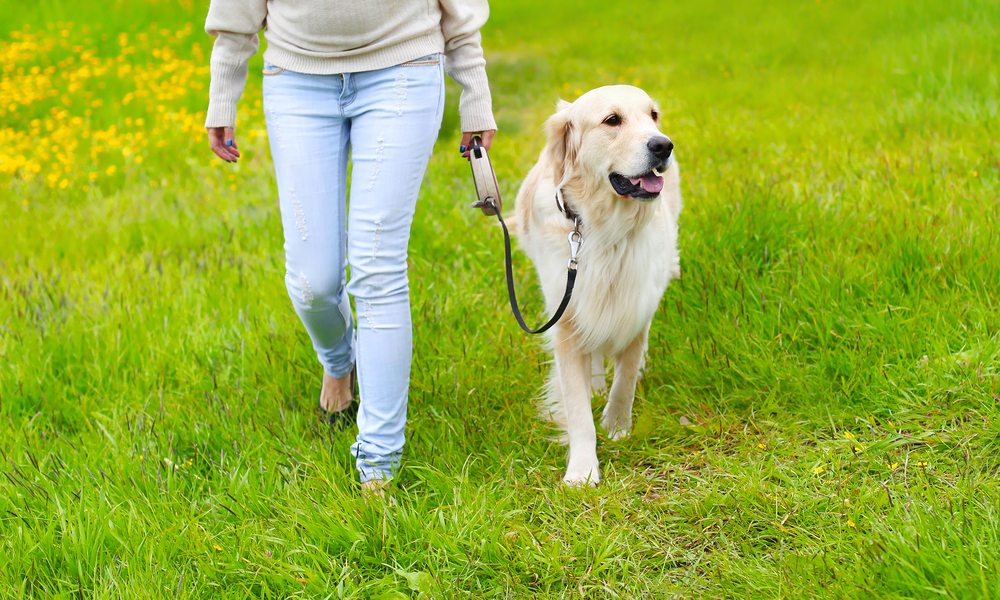
Grooming ✂️
Although a Golden Retriever has a lot going for it, one of the biggest challenges associated with owning this breed comes from its coat. The Golden’s coat is beautiful, but it does take a lot of maintenance and the breed is known to be a heavy shedder, so you need to be prepared for a lot of dog hair around the house, in the car, and even on your clothes. Brush daily to prevent the coat from getting matted. Matted hair is uncomfortable and unpleasant for your dog. The Golden Retriever also benefits from having a bath every month or two to help get rid of dust and dirt, and also to manage the dead hairs.
Nails will need trimming. How often you have to trim nails will depend on whether they get worn down naturally on walks. Dogs that have some time walking on concrete and other hard, abrasive surfaces, do not need to have their nails trimmed as often, but if you walk your Retriever exclusively on grass and soft surfaces, you should expect to trim every two months or so. It is possible to trim your dog’s nails yourself, or you can have it done by a professional groomer.
Teeth also need brushing. Brush between three and seven times a week. Poor dental health is common in dogs, and it arises because owners do not brush regularly.
Check inside your dog’s ears regularly. It is best to do this when you bathe your dog, but you should try and check more frequently. Some owners check whenever they brush their dogs, which will help avoid infections. This is even more important if your Retriever goes swimming regularly because water in rivers and other bodies of water can harbor bacteria that transfer to the warm, damp ear canals.
Health and Conditions 🏥
Golden Retrievers are prone to certain hereditary illnesses that owners need to keep watch for. If you spot any early signs of these conditions, visiting a vet and having your dog checked out could help prevent major problems.
Hip dysplasia occurs when the bones around the hip joint do not align properly. It can cause discomfort and may lead to considerable levels of pain. It can also result in arthritis developing as your dog ages. Elbow dysplasia is a similar problem but occurs in the elbow joint.
Cataracts and progressive retinal atrophy are conditions that affect the eyes and vision. Check for visible signs of cataracts, such as a milky shine on the eye’s surface, and for signs that your dog is suffering from night blindness.
These and other health conditions to look for include:
- Allergies
- Bleeding Disorder
- Cardiomyopathy
- Entropion
- Trichiasis
- Cataracts
- Elbow Dysplasia
- Hip Dysplasia
Seek veterinary advice if you’re concerned about your pet’s well-being.

Male vs Female
As is common with most dog breeds, male Golden Retrievers will grow to be a little heavier and bigger than females. Some owners claim that males become more attached to their humans while females are independent. Both are still considered affectionate and loyal dogs, but the female might not require quite as much attention and may be less likely to suffer separation anxiety.
However, traits like this are more commonly determined by the dog’s individual character rather than gender.

3 Little-Known Facts About the Golden Retriever
1. They Need a Lot of Activity
The sporting group is a group of dog breeds that not only enjoy walks but tend to require more intense forms of exercise. The Golden Retriever will enjoy going on long walks and hikes with its owner, but it will also enjoy getting out and chasing a ball or playing fetch. The breed also does very well in canine sports and their intelligence means they can learn and master most sports.
If your Retriever does not get enough exercise, it can cause depression and it may also lead to your dog displaying unwanted behaviors such as destructive chewing and excessive barking. Because the Retriever loves to eat, lots of exercise is important to help ensure that it doesn’t put on excess weight, too.
2. Golden Retrievers Make Excellent Therapy Dogs
Retrievers really have been used in virtually all service dog roles, although they don’t tend to do well as guard dogs or guardian dogs because their disposition is too friendly. One area where the breed does excel, however, is in therapy work. They exhibit empathy and seem to understand what people need and when. As such, they are used in hospitals and other settings to comfort patients.
3. They Are Naturally Mouthy
Although they are used in many service roles today, the Golden Retriever was originally bred as a retriever. This meant that they would chase and collect birds that had been killed by their hunter handlers. They were considered exceptional for the role because they were attentive, at home in the water, and they would gently carry birds back without damaging them.
Today’s Golden Retriever is still happy using its mouth to retrieve items, and you may need to train a young Retriever not to grab your hand and pull you around.
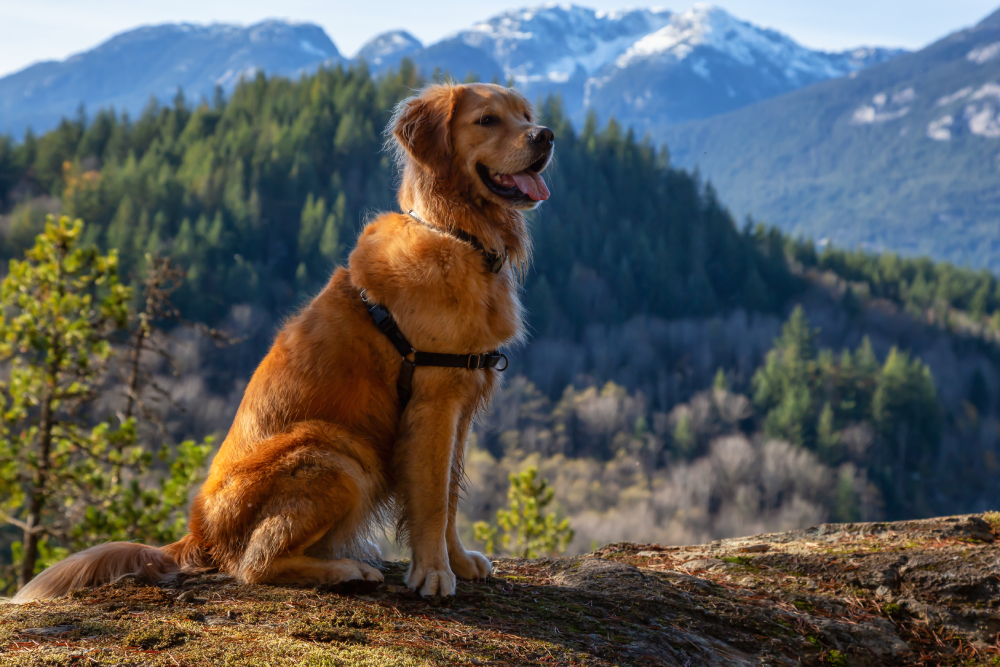

Final Thoughts
The Golden Retriever is one of the most popular dog breeds in the world and makes a good choice for first-time owners. The breed is loyal and loving, friendly and sociable. It will get along with family, friends, strangers, and other dogs. But it does require a lot of exercise and needs activities or work to help keep its mind active.
The Retriever can also be a bit clingy, and that stunning coat takes a lot of care to ensure that it doesn’t get matted and to elicit some degree of control over the heavy shedding it exhibits.
See also:
- How Much Does It Cost to Own a Golden Retriever? Price Guide
- Why Does My Golden Retriever Lick Me So Much? Possible Reasons
Featured Image Credit: rustyc, Pixabay
